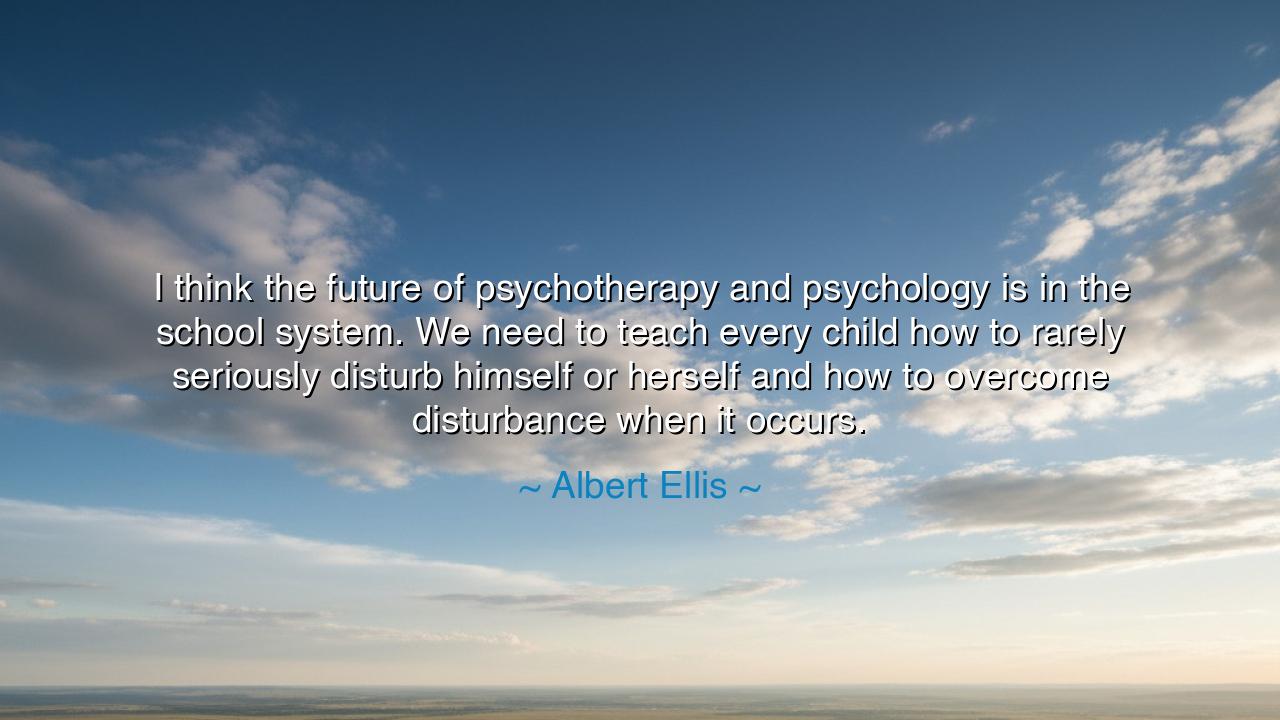
I think the future of psychotherapy and psychology is in the
I think the future of psychotherapy and psychology is in the school system. We need to teach every child how to rarely seriously disturb himself or herself and how to overcome disturbance when it occurs.






"I think the future of psychotherapy and psychology is in the school system. We need to teach every child how to rarely seriously disturb himself or herself and how to overcome disturbance when it occurs." These words by Albert Ellis are both a profound call to action and a vision for the future. In a time when the world is increasingly aware of the importance of mental health, Ellis highlights the need to address this issue at the very foundation of society: the school system. He suggests that, in order to build a future of psychological resilience, we must instill in children not just the tools to manage their minds but the wisdom to avoid self-doubt and disturbance in the first place. This teaching, he believes, is crucial in cultivating a generation of individuals capable of overcoming adversity with strength, wisdom, and emotional stability.
To understand the depth of Ellis' insight, we must first reflect on the nature of disturbance—that inner turmoil we all face at times. Socrates, the great philosopher, understood well the human tendency to be led astray by negative emotions and irrational thoughts. He encouraged his followers to question their beliefs and emotions, urging them to seek truth and clarity rather than being overwhelmed by disturbance. In the same vein, Ellis proposed that if we teach children the tools to recognize and manage their emotions, we will help them lead lives of emotional balance. Just as the ancient philosophers sought wisdom to guide their lives, Ellis believes the modern world must provide children with the skills to guide their own emotional health.
Ellis' vision speaks to a transformative idea—the idea that mental well-being is not something that is purely reactive, but something that can be preventive. Consider the ancient Egyptians, who developed systems of education that included lessons on self-discipline and the cultivation of an orderly mind. They believed that by instilling these teachings from a young age, they would create strong, clear-minded leaders who could guide their society toward greatness. In much the same way, Ellis advocates for a psychological education that gives children the power to **res






AAdministratorAdministrator
Welcome, honored guests. Please leave a comment, we will respond soon